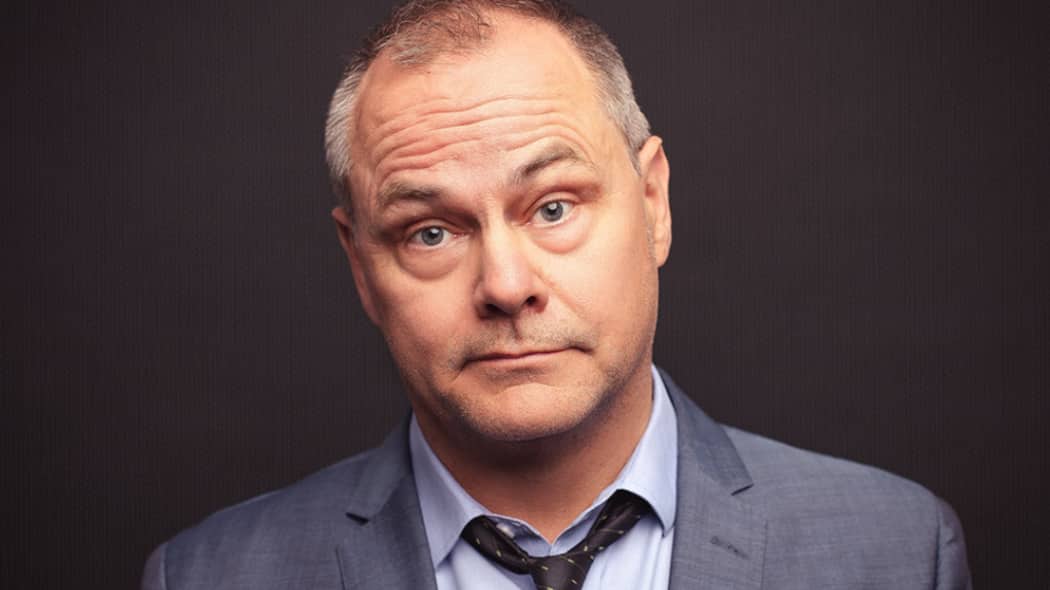You are viewing your 1 free article this month. Login to read more articles.
Jack Dee | 'I trust my instincts and if I’m making myself laugh, it’s usually OK'
 Caroline Sanderson
Caroline SandersonCaroline Sanderson is a non-fiction writer, editor and books journalist. Her books include a travel narrative, A Rambling Fancy: in the F ...more
Armed with a spurious four-hour online qualification, Jack Dee turns agony aunt in a humour title that riffs on daily dilemmas

Caroline Sanderson is a non-fiction writer, editor and books journalist. Her books include a travel narrative, A Rambling Fancy: in the F ...more
Amid a veritable blizzard of books by comedians out this autumn is What Is Your Problem? by Jack Dee, in which “comedy’s little ray of sleet grapples with life’s major dilemmas”. It’s a joyous spoof which riffs on the fact that lockdown has both highlighted our existing domestic difficulties and given rise to some entirely new ones. As Dee puts it: “Lockdown was like a microwave oven for relationships, bringing to a rapid boil issues that might otherwise have taken a lifetime of simmering before reaching the critical point of ruin.”
Dee’s humorous premise is that while the rest of us were baking bread and downing Zoom cocktails, he re-trained online as a psychotherapist, undertaking four hours of study at the “Ruislip College of Advansed (sic) Learning”. Armed with this supposed qualification, he has reinvented himself as an Agony Uncle, ready to apply his “professional” opinion to a portmanteau of predicaments, including coping with Christmas, being dumped by text, DIY, teenage screen time, and the pros and cons of manbags. Throughout the book, his therapeutic style is best categorised as less of a “metaphorical hug” and more of the “deft kick up the backside” all of us occasionally need.
The court jester element of my position means that I can say these things that often don’t get said, or don’t get said in a direct enough manner
Before embarking on the book, Dee—three times a British Comedy Award winner, as well as the author of a 2009 memoir, Thanks for Nothing—already had form as a problem-grappler, having fronted “Jack Dee’s Help Desk” for the BBC. This live and collaborative show toured the country and was broadcast in the run-up to the 2015 general election, the 2016 EU referendum, and the 2017 US presidential inauguration. He also penned a short- lived agony column for Loaded magazine. Then in 2019, he was approached by Quercus editorial director Jane Sturrock to lend the same comedic approach to a book of everyday problems. “I’d just started a very long tour,” Dee tells me, speaking via Zoom from his home in London. “So I told Jane that while I’d like to do it, I didn’t have time. And then of course we all know what happened next.” With the cancellation of his tour at the beginning of 2020 owing to the pandemic, Dee was able to work on the book after all. Quercus put out a call for sample problems from the public, including on social media, from which Dee selected those which piqued his interest.
“Finding questions that would suit my style of answers was key. There were some where I started writing and then thought, ‘Oh hang on, this is actually quite a sad problem.’ I had to be careful I wasn’t stamping on someone’s suffering,” Dee says. He also rejected suggested problems that were facetious to start with. “If you try to do funny on funny, they cancel each other out. For the book to work, you have to believe the questions are genuine and then be slightly disapproving of the way I’m answering them.”
Writing the book was, Dee tells me, a very different experience from his customary day job. “My whole life has been the spoken word. With stand-up I don’t ever sit down and type a script—it’s not how it works at all for me. I’ll start with an idea and then I’ll riff on it onstage. And bit by bit, night after night, the material gets tighter and better. It’s how a lot of comedians work. With the book I had to focus on getting it as good as I could on the page and it made me realise that on stage you have a lot more licence to waffle. I think Jane [Sturrock] had quite a good radar for that and I could see how it was annoying on the page. Whereas on stage it’s actually quite thrilling to see a comedian who can go all over the place and still come to the same point.” Who did he try his jokes out on without that live audience? “Myself! I trust my instincts and if I’m making myself laugh, it’s usually OK. I found myself really looking forward to getting back to the book each morning, because it felt like a good substitute for being on stage.”
What Is Your Problem? is indeed very funny, and it’s partly because much of Dee’s advice is not at all helpful. But what’s even better is that sometimes his advice is—albeit inadvertently—genuinely wise and illuminating. Responding to “Lynn”, who wants to have children but whose boyfriend thinks “it will spoil everything that we have worked so hard for”, he writes: “Well, Lynn, it is hard to reply without saying up front that I totally agree with your boyfriend. He is absolutely right, having children will wreck everything. That is what they do and it’s OK to say it because you can love your kids while hating what they do to your life. This is the great dichotomy that defines parenthood.”
And in answer to “Phil”, who wants advice on dealing with the nonsense spouted by his conspiracy theorist brother-in-law “John” (who “genuinely believes all kinds of strange things relating to everything from the Moon landings to Covid”), Dee suggests treating everything John says as if he meant it as a joke, and responding with “brazen, outright” laughter because “people like John crave being taken seriously”. It’s a truly inspired piece of advice.
I mention this to Dee. “The court jester element of my position means that I can say these things that often don’t get said, or don’t get said in a direct enough manner.” I am, by the way, completely skewered in the very first problem in book, which I read just as I was making a batch of elderflower cordial. It concerns Sophie from Tooting (where I used to live) complaining about her sister-in-law and husband, who have moved to the Cotswolds (as I did 16 years ago) and now piss her off by over-embracing country living, and bringing carloads of home-made produce with them when they visit. “Ha! I got that bang on then! Sorry about that—it’s to your credit that you didn’t throw the book in the bin then and there,” laughs Dee.
What Is Your Problem? reminds us that the finest comedy so often derives from real situations. But in these serious times, it also treads a fine line between amusing and offending, and I ask Dee how he navigates this. “My rule of thumb on stage has always been: if I’m making a joke about someone, would I still make that joke if they were sitting in the front row? And if I wouldn’t, then I’ve no business making it. It’s very similar when you’re writing a book. In fact, perhaps then you’re even more aware of what you’re committing to words because it’s going to be out there for a lot longer. On stage you have more licence, because you know that if you say something terrible, you’re the one in danger because the audience can boo you off.”
And yet humour has the potential to do us so much good as well: Dee believes it is “a massive part of our humanity”. Does he think comedy should always come from a place of benevolence? “I think an underlying good nature is important. That’s about as politically correct as I’ll go. But as a comedian, especially one with a profile, you’re not without responsibility: you have to think carefully about the way you’re saying things. Whether you like it or not, you’re a role model, and so if you make clumsy and ill-considered remarks, then more fool you.”
Book extract
During lockdown, my girlfriend cut my hair and wants to continue doing it, even though I can now go out and get it done properly. She reckons she did a great job and that it saves money and she was offended when I said I’d rather go to a barber. What should I do?
This is a classic case of double standards and can lead to great resentment further down the line if left unchecked. Explain that if it’s about saving money then surely you should both be doing this and that you should therefore be cutting hers. Then explain that you intend to post the hilarious results on social media to raise money for charity. I think she’ll back down.










